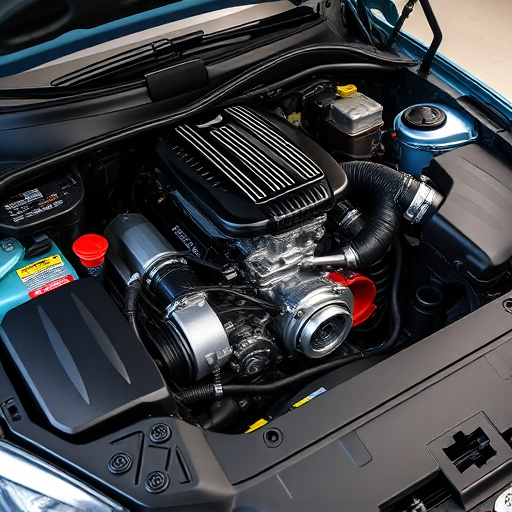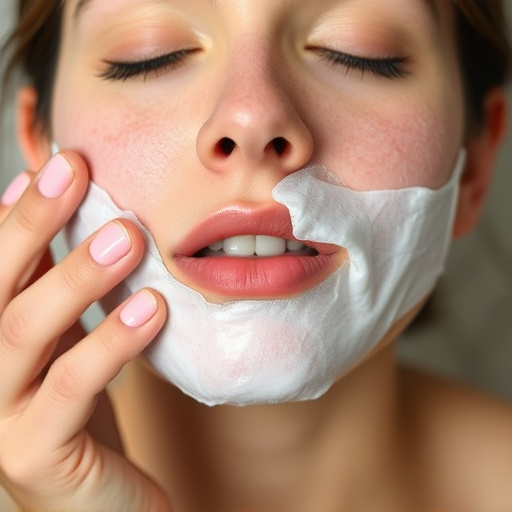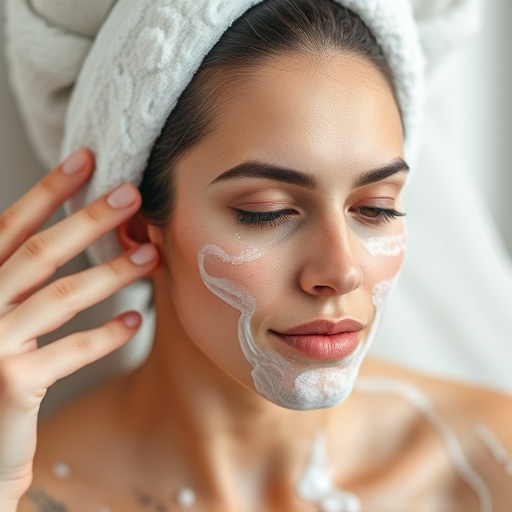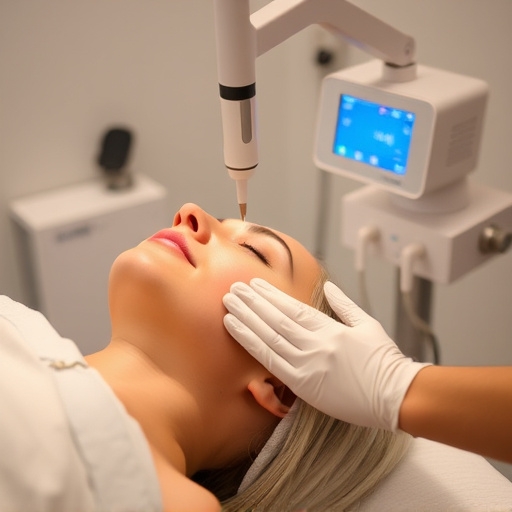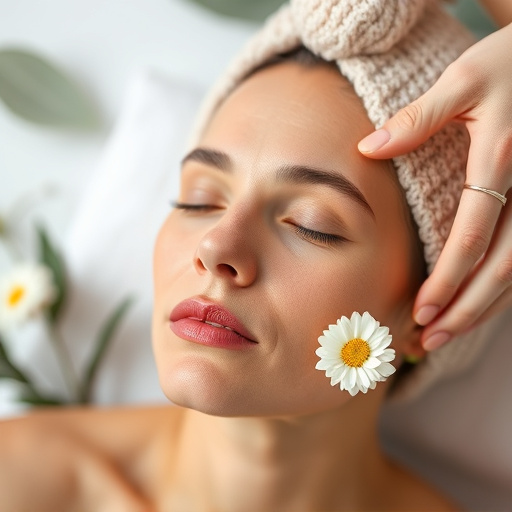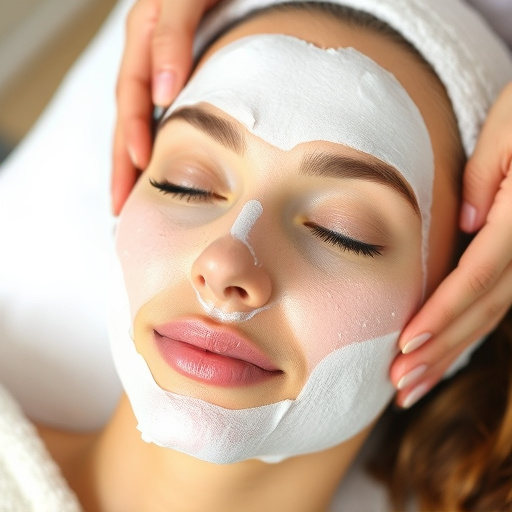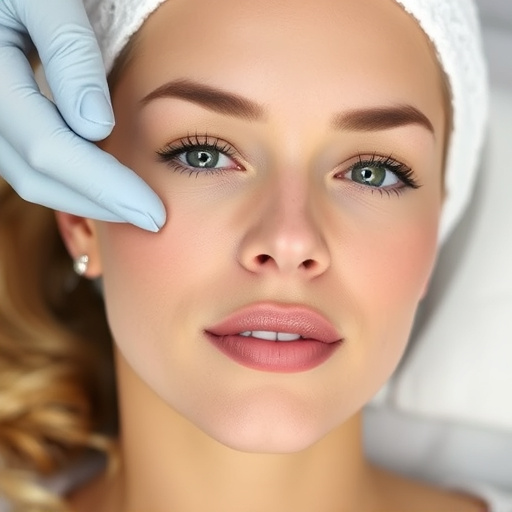Cystic acne management requires avoiding picking at blemishes and adhering to professional skincare hygiene. Non-surgical treatments like facials and targeted therapies soothe irritation, promote healing, and minimize scarring or infection risks. Healthy skin care habits, including daily cleansing, exfoliation with AHAs/BHAs, and SPF protection, are crucial for effective cystic acne treatment and maintaining clear, healthy skin.
Cystic acne, a severe form of acne, requires careful management to prevent scarring and promote clear skin. However, during the treatment process, it’s essential to avoid common pitfalls that can hinder progress. This article guides you through the do’s and don’ts of managing cystic acne, focusing on crucial aspects like steering clear of touching and picking at blemishes, refraining from using harsh products, and prioritizing sun protection—all vital steps in achieving effective cystic acne treatment.
- Avoid Touching and Picking at the Acne
- – The risks of infection and scarring
- – Promoting healthy skin care habits
Avoid Touching and Picking at the Acne
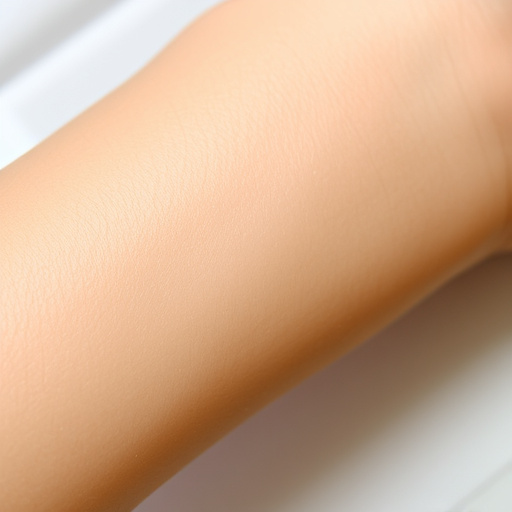
Cystic acne can be incredibly frustrating to deal with, but it’s crucial to resist the urge to touch or pick at the affected areas during treatment. This may seem like a simple act, but it can have significant negative impacts on your cystic acne treatment process and overall skin health. Picking at acne can cause further inflammation, leading to more severe scarring and potential infection. Moreover, your hands carry bacteria that can exacerbate the condition and create an unfavourable environment for healing.
Instead of resorting to these habits, consider professional medical spa services tailored for cystic acne treatment. Hydrating facials and targeted therapies can help soothe irritated skin while promoting a healthier complexion. Remember, maintaining good skin care hygiene and avoiding picking at your acne are essential steps in achieving clearer, healthier skin.
– The risks of infection and scarring
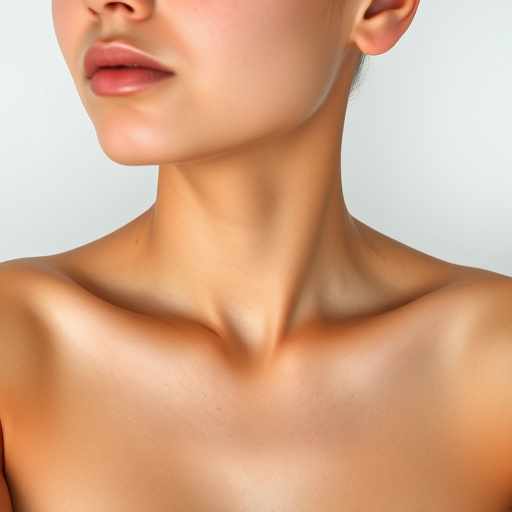
Cystic acne can be a severe form of skin condition that requires proper care and attention. One common mistake individuals make during cystic acne treatment is neglecting potential risks associated with improper practices. Infection and scarring are significant concerns when dealing with cystic acne, and these complications can arise from simple everyday habits.
Avoid touching the affected areas frequently, as it may introduce bacteria to the skin, leading to infections. Similarly, picking or squeezing pimples, a common impulse, can cause further damage and leave permanent scars. Non-surgical treatments like customized facials offer gentle alternatives to address cystic acne without increasing the risk of infection or exacerbating scarring. Prioritizing clean, non-aggressive facial treatments is essential for effective management while minimizing adverse effects.
– Promoting healthy skin care habits
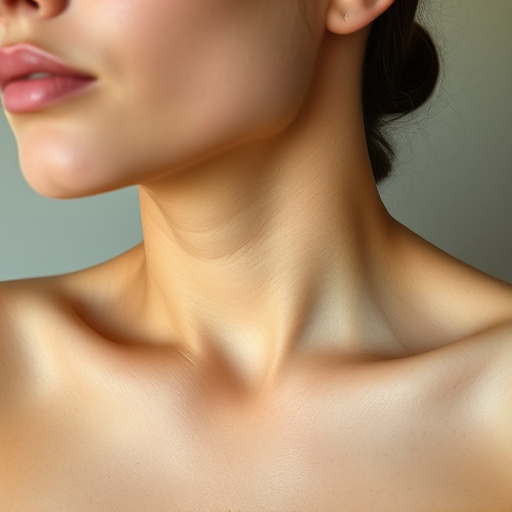
During cystic acne treatment, promoting healthy skin care habits is paramount to achieving and maintaining clear skin. It’s essential to remember that proper skincare routines are an integral part of the healing process. Daily cleansing with gentle, non-irritating products helps remove excess oil, dirt, and bacteria from the skin, preventing further clogging of pores. Exfoliation, when done correctly, can aid in eliminating dead skin cells, allowing for better absorption of treatments targeted at cystic acne.
Avoiding harsh scrubs or chemicals that could cause inflammation is crucial. Instead, opt for chemical exfoliants like AHAs or BHAs, which are known for their gentle yet effective ability to unclog pores and promote skin health. Additionally, protecting the skin from the sun is vital; always use sunscreen with at least SPF 30 to prevent hyperpigmentation, a common side effect of acne scars. Remember, consistent and gentle skincare practices support your cystic acne treatment efforts, enhancing their effectiveness while ensuring optimal skin health.
When undergoing cystic acne treatment, it’s crucial to avoid certain pitfalls. Touching or picking at acne can lead to infections and scarring, hindering your progress. Instead, prioritize healthy skin care habits, like gentle cleansing and avoiding excessive manipulation. By steering clear of these common mistakes, you enable your skin to heal and foster a more effective cystic acne treatment outcome.




